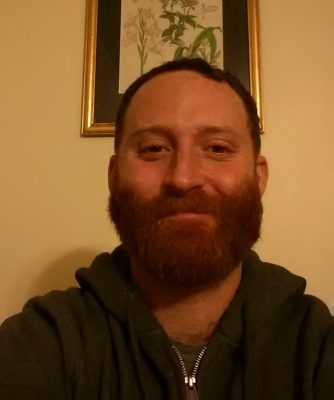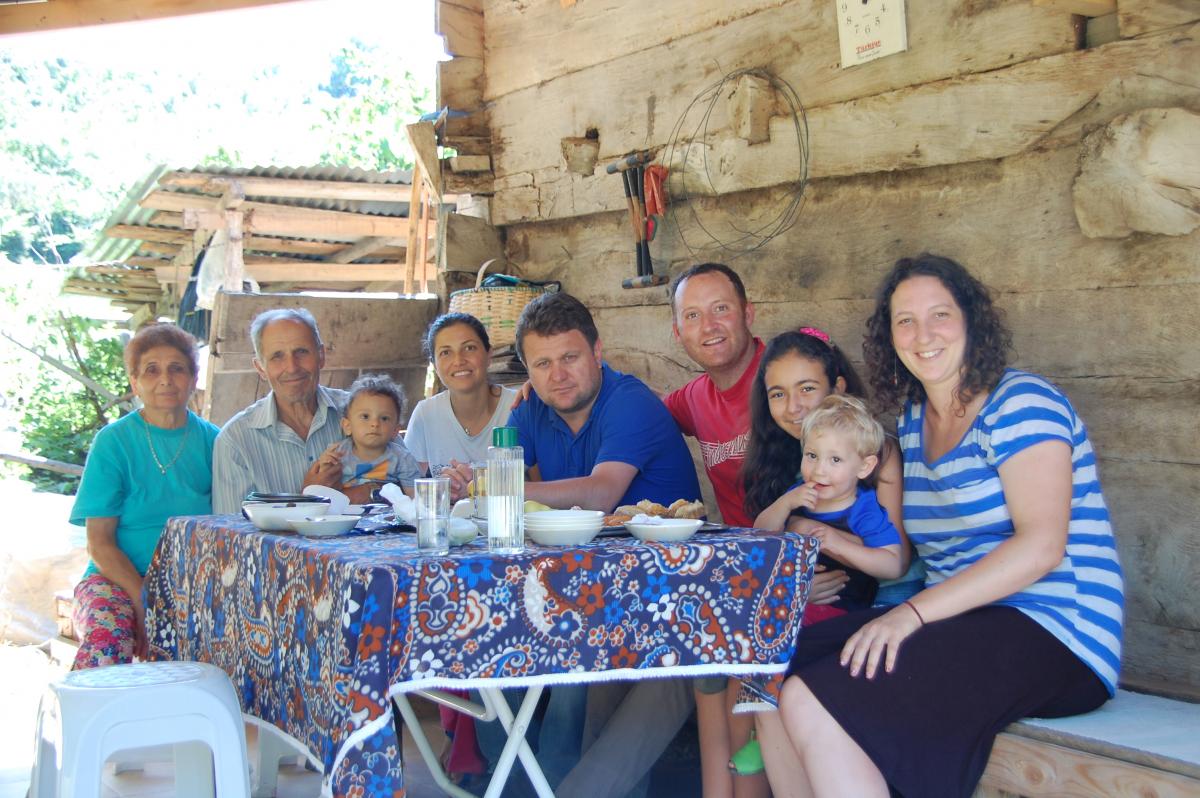Student Spotlight: Jeffrey Wall

What is your area of research?
My area of research is most accurately described as ethnobiology, or the study of the dynamism and diversity inherent to human relations with biota and ecology.
What inspired you to choose this field of study?
My anthropology background and my travels have steered me into the lifelong work of actively appreciating and conserving both cultural diversity and its correlate, ecological diversity. My undergraduate professor at the College of Charleston, Dr. John Rashford, first inspired me to think deeply about the role of culture in human ecological relations, particularly human plant relations.
Also, it cannot be overstated how much inspiration I have derived from my committee members here at Cornell. Working together, Drs. Shorna Allred, Carol Colfer, Susan McCouch, Michael Milgroom, and Stephen Morreale have my pushed my research program towards an intensity and quality of interdisciplinary inquiry that I had not thought possible.
Why is this research important?
Ethnosciences such as ethnobotany, ethno-ornithology, and others have the power to conceive knowledge in an egalitarian framework. It is instinctual for the vast majority of western developed epistemology to demote and/or delegitimize other ways of knowing. However, the magnitude and time-sensitive nature of humanity’s environmental challenges today, not to mention modern common sense morality, require alliances where there have historically been exploitative knowledge relations. I believe the ethnosciences are a bridge for the sciences to cross over the river of colonial tendencies into a modernity in which countless ways of knowing are engaged in humanity’s struggles.
How has your background influenced your scholarship?
I think two aspects of my childhood are most active in the way I conceive of the world we live in. First, I grew up in a very tranquil little blue-collar suburb of Dallas, Texas, in which my family and many of my neighbors kept horses. This homage that my neighborhood, just eight miles from roaring downtown Dallas, paid to rural life stuck with me. As I have traveled the world, the most disconcerting phenomenon I see is the invalidation and erosion of rural ways of life in favor of the more recent aspirations of a largely urban humanity. It strikes me as an unprecedented experiment and the way my neighborhood approached modernity by salvaging aesthetic and biological pleasures of a rural way of life is an important aberrant within the world’s exploding urban population.
Second, due to tough family dynamics at home when I was around 12 years old, I had the privileged of going to live with my aunt, who was a schoolteacher in Luxembourg City, Luxembourg. The magnetism of cultural difference has perpetually drawn me in heart, mind, and soul ever since. I believe that my young mind, and maybe the humbling experiences of my childhood, allowed me to see the two cultures of Luxembourg and the United States as equals without cramming them into categories like superior/inferior.
Later in life, my travels took me to the developing world. I lived in Egypt as a schoolteacher and in Azerbaijan as a Peace Corps Volunteer. I have everywhere seen societies enmeshed in the struggle to cope with the roaring effects of modernity such as climate change, food insecurity, globalization, and rapid urbanization. My experience of understanding Luxembourg as an equal and perfectly valid cultural world has extended to the ways I view individuals and household decisions managing the refracted effects of the global phenomena I listed above.
I extend this pattern of thought to my main phenomenon of interest: plant genetic resource conservation and particularly the livelihood systems, which maintain the vast majority of the volume and diversity of the world’s plant genetic holdings. Efforts to conserve important plant diversity must be pursued both in the off-site seedbank model and in the on-site native environments and management systems model. However, I believe that values and knowledge held by those other than international markets and national governments, such as households, indigenous peoples, and women, are equally valid and, ethically, should be duly accounted for in conservation procedures. This is a larger mission of my academic pursuits.
You received a Fulbright U.S. Student Fellowship to conduct dissertation research in Turkey. Congratulations! What was the application process like?
The application process was majorly streamlined by our wonderful Fulbright Office at the Mario Einaudi Center for International Studies. I am particularly indebted to Ms. Elizabeth Edmondson. The application itself is fairly standard, but the review process is not. Unlike so many fellowships and scholarships, in U.S. Student Fulbright applications, people from the country you are applying to, i.e. host country nationals, often have the final review and say over the selected projects. So if you have a research program that you know is important for the average person in the country you are applying, but it is difficult to convey that importance to western-based academic reviewers, the Fulbright is a great target for you!

What will you be researching in Turkey?
My team of Turkish partners and I will be investigating the role of traditional knowledge and value among Turkey’s chestnut-utilizing community in the struggle against chestnut blight. I will be conducting special activities to uncover the unique knowledge and values held by women and by actors up and down the value chain, from forest to bazar.
In what ways will the research you conduct on this trip be vital to your scholarship?
I have completed eight weeks of preliminary fieldwork. As one devoted to anthropological disciplines however, there is no substitute for spending extensive time in the culture in which you study. The Fulbright, which runs for an academic year, will give me time to go about my fieldwork, which will require numerous activities, interviews and visits, in a thorough and comprehensive way. This year of research will generate the material I need to complete my dissertation.
More importantly, the partnership which is required by the Fulbright application process and the mission of overt public engagement required by the Fulbright, reinforce my goal of performing research that is recognized by local affiliates and participants as a service. In the case of our research, the Fulbright will allow us to develop and deliver an illustration of value for particular chestnut traits, cultivars, and geographic populations from the chestnut utilizing communities across Turkey. This can factor into currently operating government and internationally led chestnut conservation programs. Also importantly, this research program can serve as a model for conducting similar folk valuations for other species, trees, plants, and more in Central Asia and beyond.
Are there any other grants you’ve received that have helped you in your scholarship? If so, please elaborate.
Yes, my preliminary research was made possible by the Scientific and Technological Research Council of Turkey (TUBITAK) Research Fellowship Programme for International Researchers. This preliminary research will be finalized with the assistance of the American Research Institute in Turkey’s Graduate Research Fellowship. Finally, the Cornell IPCALS Advancing Women in Agriculture through Research and Extension (AWARE) Graduate Research Travel Grant will directly support my investigations with women in the chestnut utilizing community.
Any advice for other graduate students interested in applying for fellowships or grants?
Like I said, Fulbright applications actually get reviewed and approved by host country nationals. So your proposal must have merit beyond the traditional U.S. based academic criterion and must have value to people who actually live in that country.
Why did you choose Cornell to pursue your degree?
The unbelievable possibilities for interdisciplinary and pragmatic research with particularly powerful and dynamic centers of food security and biodiversity conservation research brought me out of my organic farming career into academia.
What’s next for you?
Fieldwork!
Interview by Sally Kral, communications and outreach assistant in the Graduate School
